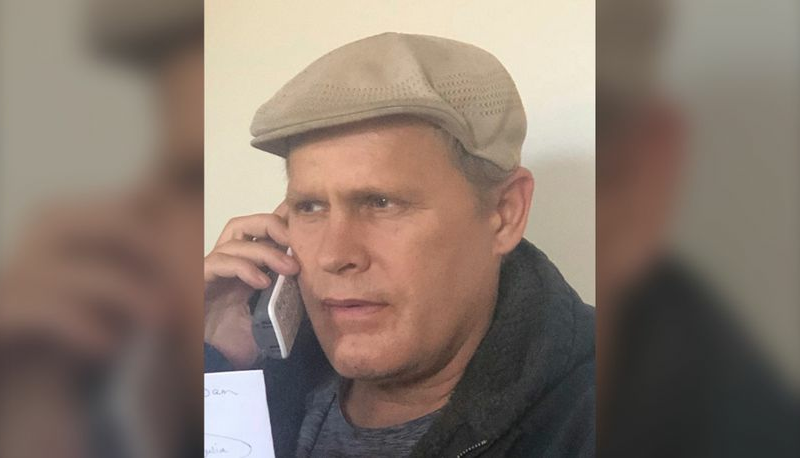By Alyssa Lukpat, The New York Times
Troy Warren for CNT #editorspicks
The long ordeal of Joshua Spriestersbach, a homeless man in Hawaii, began May 11, 2017, when a Honolulu police officer woke him up and arrested him. He had fallen asleep as he waited in line to enter a shelter for food, but instead, he was sent to a jail on Oahu for a crime he did not commit, according to a petition his lawyer filed this week seeking to clear his record.
The police officer thought that Spriestersbach, now 50, looked like Thomas Castleberry, who was wanted on charges stemming from a 2006 drug case, according to Spriestersbach’s lawyer.
Spriesterbach, who thought he had been arrested because he violated Honolulu’s ban on sitting or lying on sidewalks, was not carrying an ID at the time, and he insisted that he was not Castleberry and that he did not even know the man, according to the petition. But authorities did not believe him.
“I do not understand the charges,” he would later tell a psychiatrist, according to the petition. “I just fell asleep.”
This misunderstanding cost Spriestersbach, whose family says he has schizophrenia, more than 2 1/2 years of his life. The situation was set straight only after someone at the mental hospital where he was sent after a few months verified that he was not Castleberry, according to his lawyer, Jennifer Brown, who works for the Hawaii Innocence Project. The organization took on Spriestersbach’s case after his family reached out last summer.
Brown described the yearslong ordeal in the petition as a “gross miscarriage of justice.” She and the organization’s co-director, Kenneth Lawson, said that state and city authorities had repeatedly failed Spriestersbach.
First, Lawson said, the Honolulu Police Department did not compare Spriestersbach’s fingerprints and photograph with those of Castleberry’s, which were already in the police database. So the police sent Spriestersbach to jail, where he stayed for a few months until state authorities transferred him to Hawaii State Hospital for mental health care, according to the petition and to Lawson.
Then, Lawson said, Spriestersbach’s public defenders failed him. He was represented by a series of lawyers who did not believe him when he said he was not Castleberry. In fact, he told the public defenders that he was not on Oahu at the time Castleberry is said to have committed his crimes, Lawson said. He added that Castleberry had been in an Alaska correctional facility the entire time Spriestersbach was accused of Castleberry’s crimes. (Castleberry, who is 49, remains incarcerated in Alaska.)
A Honolulu Police Department spokesperson said Thursday that the department was “looking into the circumstances of Spriestersbach’s arrest.” The hospital did not respond to emails or phone calls Thursday requesting comment.
Hawaii’s Office of the Public Defender also did not respond to emails and phone calls Thursday seeking comment.
At the hospital, Spriestersbach protested when he was forced to attend group sessions for drug users, and employees responded by giving him antipsychotic medications that made him drool and struggle to walk, according to the petition and to Vedanta Griffith, his sister.
“The more Mr. Spriestersbach vocalized his innocence by asserting that he is not Mr. Castleberry,” the petition said, “the more he was declared delusional and psychotic.”
All but one of his court-ordered psychiatrists failed to recognize that Spriestersbach was not lying about his identity, Lawson said. He had not yet gone to trial because the psychiatrists, sent by court judges, had not determined that he was fit to stand trial.
Things started to shift in November 2019, when one of his psychiatrists obtained his birth certificate and realized that Spriestersbach was the person he said he was, according to the petition. But the official record is spotty about what happened between then and his January 2020 release, Lawson said.
The hospital’s discharge record, which Spriestersbach’s sister provided to The New York Times, shows that the court-ordered psychiatrist reported her finding to the hospital’s lawyer and his public defender.
The hospital’s lawyer called the Honolulu police, and a detective discovered the mix-up after taking Spriestersbach’s fingerprints and photograph, according to the record. Spriestersbach was quietly released from custody.
“No one said anything about, ‘We made a mistake. We need to fix this,’” Lawson said. “Nothing.”
Spriestersbach’s case drew widespread attention this week after Brown filed the petition Monday in the state’s 1st Circuit Court to clear his name and vacate his 2017 arrest.
Representatives from the Honolulu prosecuting attorney’s office and the state’s Department of the Attorney General said Wednesday that their offices were looking into the Innocence Project’s accusations.
“The allegations in the petition are concerning to us,” said Matt Dvonch, the special counsel to the prosecuting attorney.
Spriestersbach is still at the center of what his sister described in an interview Thursday as a “tangled hornet’s nest.” Court records in Hawaii note that Spriestersbach is known by the alias Thomas Castleberry, and Castleberry still has an outstanding arrest warrant in the state. Spriestersbach is terrified, Griffith said, that a police officer anywhere in the country could detain him and extradite him back to the islands.
Griffith said Spriestersbach was embarrassed by what had happened to him in Hawaii, noting that he declined to comment on his situation. He moved to Hawaii with her family in 2003, and she lost track of him after she moved back to the mainland. He reunited with his sister after he was released in January 2020 to a homeless shelter, where he called his family.
Griffith tearfully recalled the first time she saw her brother at the airport, after more than a decade apart.
“His shirt was wet from drool, and he was shuffling his feet,” she said. “He was just so medicated.”
She brought him to her home in Vermont, she said, where she and her husband cook him meals every day. Spriestersbach takes fewer medications these days and is doing much better, Griffith said, but he doesn’t feel safe.
“He goes outside and walks around on the property,” she said, “but he doesn’t want to leave because he’s afraid that anywhere we go, there could be police officers.”
Spriestersbach spends his days learning how to play a bass guitar and watching the television series “The Walking Dead,” Griffith said. She said he would always have a home with her family, so he never has to be homeless again.
“He’s the kindest, gentlest soul, and he wouldn’t hurt anybody,” she said. “There’s nothing they can do to give him those years back.”
In Other NEWS



































